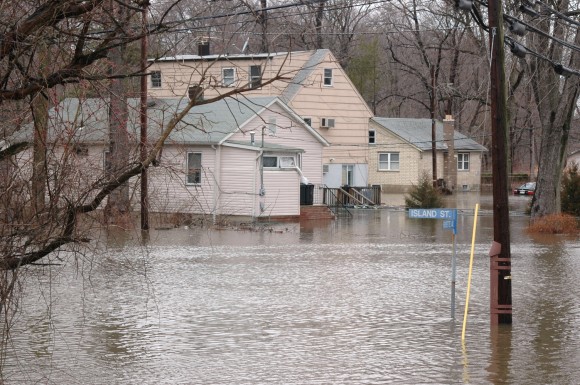
Source: morgueFILE
New Jersey residents can learn about the hidden dangers of flooded buildings and how to protect themselves in this course offered by the Rutgers Office of Continuing Professional Education.
Months after Hurricane Sandy pounded New Jersey, many people are still dealing with the clean-up and rebuilding of their flooded homes and businesses. The health hazards associated with water-damaged buildings are numerous, ranging from the obvious – mold and electrical concerns – to the less well-known – asbestos contamination, microbial agents and pathogenic viruses.
Rutgers’ Office of Continuing Professional Education (OCPE) is offering a one-day class to help building owners, inspectors and remediation professionals learn about and address these problems. The class, “How to Deal With Flooded Buildings,” is scheduled for March 12, from 8:30 a.m. to 4:30p.m., in New Brunswick. Register online or by calling 732-932-9271.
OCPE Director Ned Lipman, a lifelong summer resident of Seaside Park and South Seaside Park, explained part of the impetus for offering this class. “Seeing my friends and neighbors struggle to get back into their homes is heartbreaking,” he said. “I know first-hand that there is a genuine need for a class like this.”
Taught by Michael McGuinness, a certified industrial hygienist specializing in indoor air quality and a mold remediation expert, this course provides an A-Z overview of the many impacts of flooding on buildings.
Through presentations and case studies, participants will learn about a wide range of issues, from structural instability to environmental concerns, and health effects to owner liability. More importantly, attendees will become educated consumers of remediation services and will learn what NOT to do so they do not make a bad situation worse.
Building owners or any professionals who investigate, clean, repair, inspect or handle the resolution of flood-damaged buildings need to understand and know how to deal with the dangers that may be lurking there. “This course will help New Jersey citizens and workers effectively and safely bring houses and buildings back to life,” said Lipman.
If Hurricane Sandy and its recent winter cousin, Nemo, taught New Jersey anything, it was that preparing for the worst is a necessity in an era of extreme weather events. And learning what to do after disaster strikes is time well spent.
To learn more about OCPE or the course, contact Pam Mayer or Jules Mosolgo at 732-932-9271. Email ocpe@njaes.rutgers.edu or visit the OCPE website.

